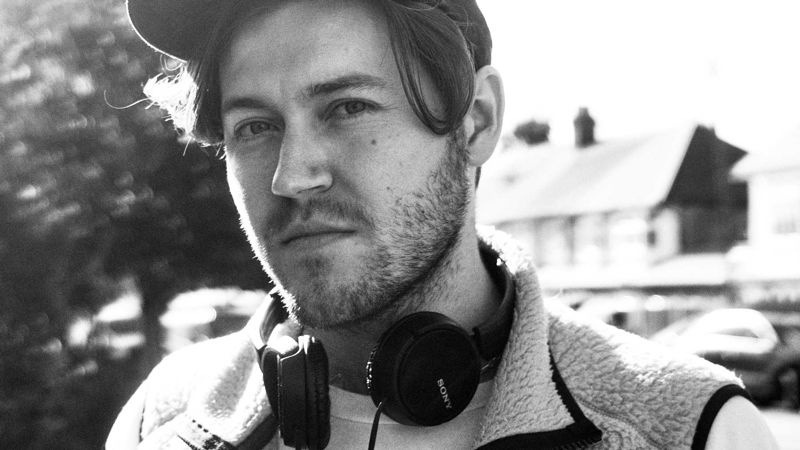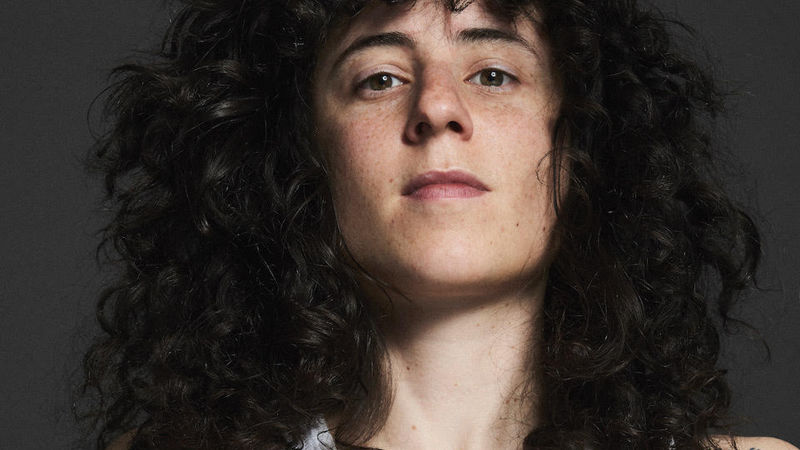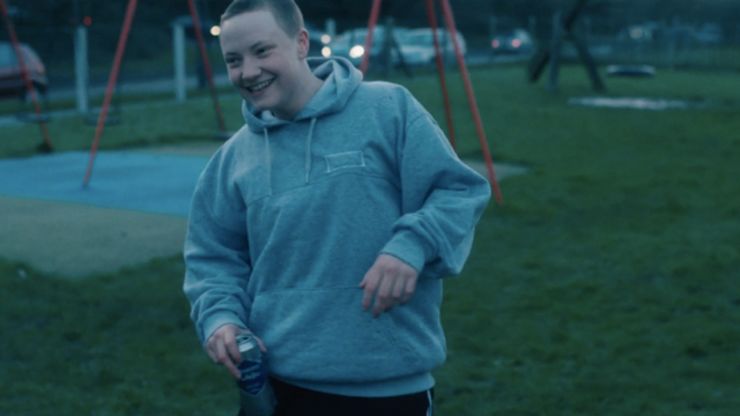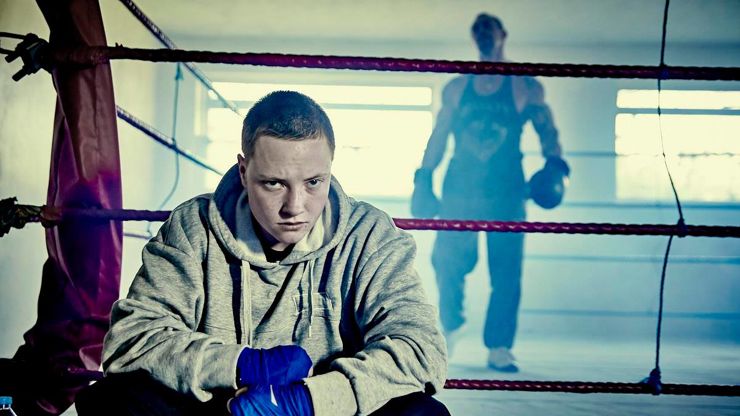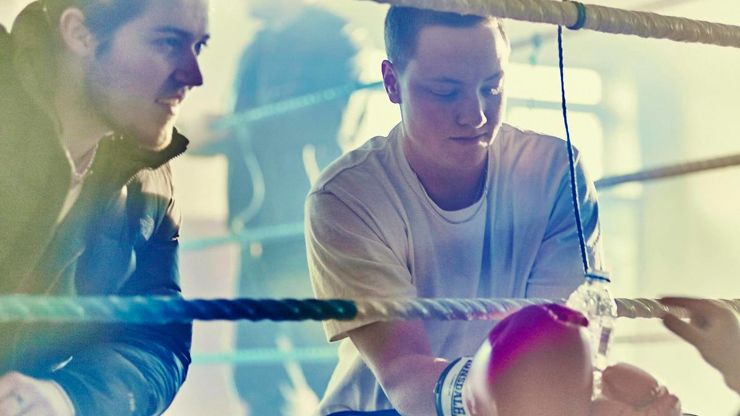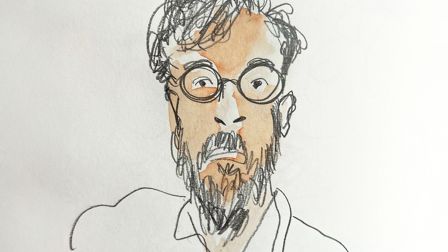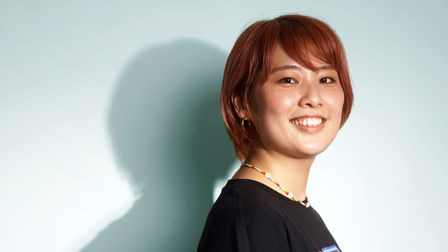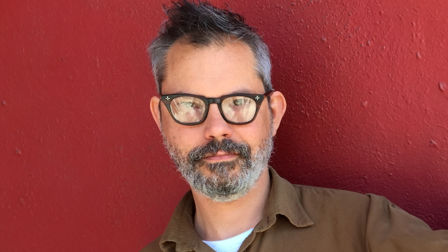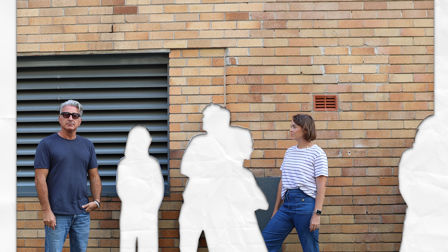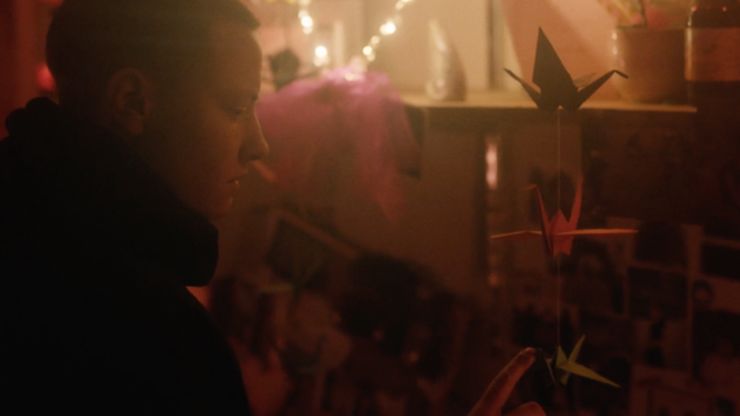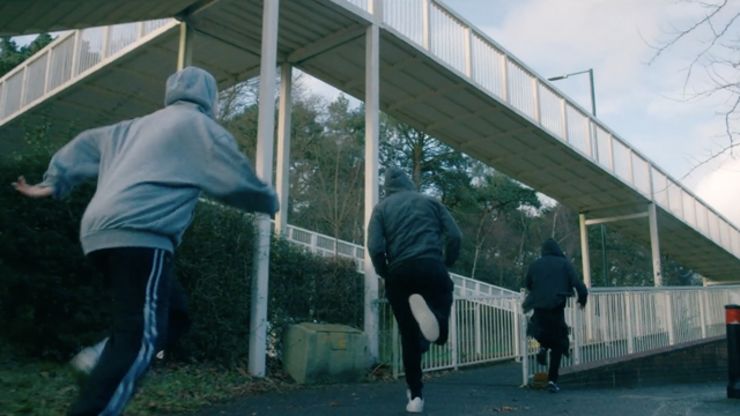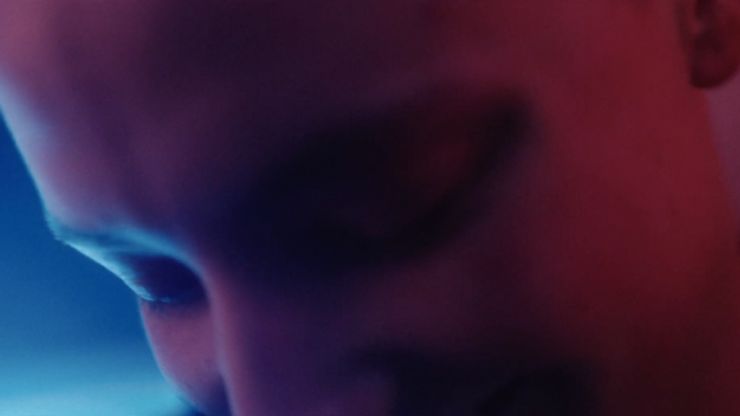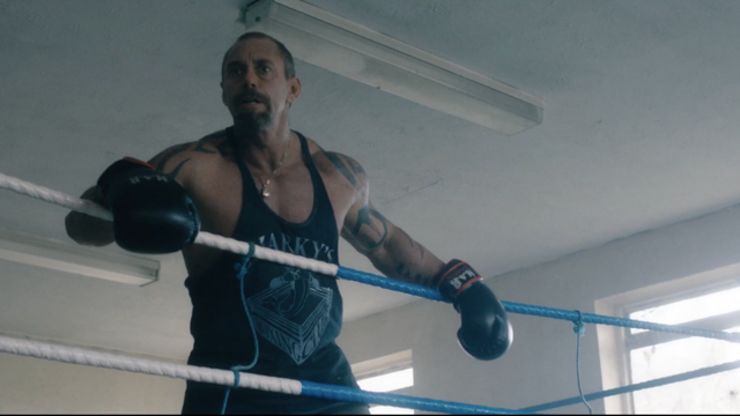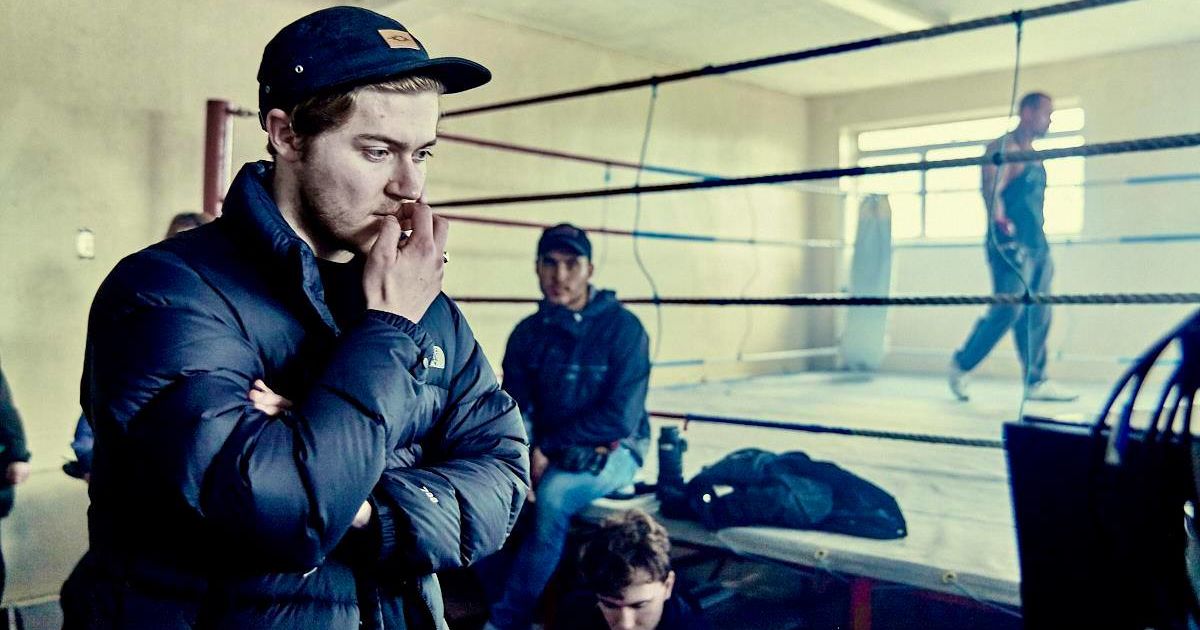With a mature sense of care and sensitivity, Jesse Lewis-Reece directs BLEACH, a short film that takes an unflinching look at a trans man’s struggle for acceptance.
Full soft edges and made of rough skin, BLEACH is a story about a man’s journey home. The story unfolds slowly, and then very fast. Lewis-Reece, a young director, recently represented on You Are Here's roster, worked hard alongside Elijah W. Harris, the young man who portrays Jay in the film, to make sure that the story was respectful, inclusive, and authentic.
The dedication that both of them have to the narrative centered around a trans man, but only look scant at transness itself is a testament to their story-first perspective. BLEACH is a story about a trans man, but it’s not about Jay’s struggle with his own gender; it’s about family, trust, hope, and hurt. We’re excited to publish an interview with the two creative forces behind this emotional short film.
Credits
powered by
-
- Production Company You Are Here
- Director Jesse Lewis-Reece
-
-
Unlock full credits and more with a Source + shots membership.
Credits
powered by
- Production Company You Are Here
- Director Jesse Lewis-Reece
- Producer Ike Newman
- DP Jacob Gerrard
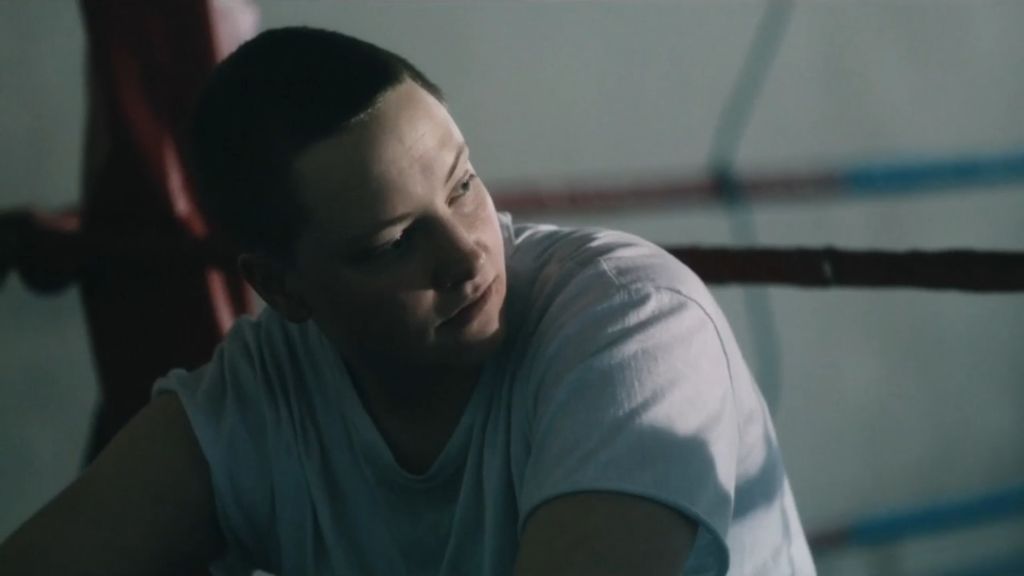
Credits
powered by
- Production Company You Are Here
- Director Jesse Lewis-Reece
- Producer Ike Newman
- DP Jacob Gerrard
How did you get into filmmaking?
Jesse Lewis-Reece: I always had an interest in film as a young kid, but I guess my real step into making films came from my love of skateboarding. I grew up in and around skateparks with my friends and the “Skate Video” scene was a huge part of that community.
It drove me to pick up my first camera and start editing videos of my friends skating to music tracks and I soon found that the passion for that actually exceeded the skating itself (probably partly because I was nowhere near as talented as my friends on a board).
Can you speak about the experience of making the film?
Jesse Lewis-Reece: The idea came from a combination of things. On one side it was wanting to work with Elijah, wanting to work together to tell a story that had a trans actor at its center. Because of the fact that the story didn’t lean solely on the "struggles of being trans," our aim was to tell a story that empowered an LGBTQ Trans character generally. We did this, not by choosing their identity to be the only focus of the film, but instead by seeing it as an important part of the character in a bigger story about fatherhood.
We weren’t expecting how affective some of the more intense scenes could be. After a particularly violent scene, we cut and there was total silence. You could hear a pin drop. A couple of crew members had to step outside.
The second side of this is that lots of people on my dad’s side of the family have a history of boxing. My grandad was a champion in his day and I was always so interested in the subculture of it all, the sense of family that can be created for people who maybe don’t have one of their own, all inside the walls of a gym dripping in sweat.
Elijah Harris: Shooting the film was such a whirlwind. Jesse brought myself and the other actors up to the producer's house for a weekend before the shoot began. We had that time to get to know each other and bond. I had no idea what to expect from the film to be honest, BLEACH was my first proper screen acting job! But I loved every second, truly.
How did you empower each other throughout filming?
JLR: I think with all films, the job of the director is to facilitate a space where the actor feels comfortable enough to try new things, to experiment and explore the character, if you create that sort of space, amazing things can happen. Another thing was just making sure the trust was there between myself and Elijah, with the subject matter being so close to home, my main priority was making sure Elijah felt like he could question and input anything he thought would elevate his performance.
EH: Jesse’s excitement definitely played a part. He was so buzzed and that energy was contagious.
What challenges did you guys encounter as you filmed?
JLR: So many challenges, but I guess that’s part of the fun! One thing was just getting my head around being on a larger set with more crew than I’d ever worked with before, it was a bit surreal to come into the location on the first day and see all these wonderful people, from camera crew to art department, working their hardest to bring the words I had written on a page to life. I definitely had to pinch myself a little just before I had to refocus and get down to the work.
It would have been illogical for me to have tried to push my own ideas too much on certain elements of the character, as nothing I could say would be as authentic as what Elijah could manifest.
EH: We shot the whole thing in about four days, so those schedule was pretty grueling. I didn’t really care, acting was all I had ever wanted to do. I was also going to the gym every day with Kru, who played Shane, my father, in the film. It sounds very wanky and method but it all informed our time on set.
Did any moments surprise you during the process?
JLR: I think for myself and a lot of the crew it was the first time we were all working with heavy material. We weren’t expecting how affective some of the more intense scenes could be on the day, and that’s a testament to the actors! I know after a particularly violent scene in the film we cut and there was a silence. You could hear a pin drop. A couple of crew members seemed a bit overwhelmed and had to step outside.
I did feel it was my responsibility to make sure we handled the material with care, and in doing so, this would create an atmosphere in which the rest of the crew would follow suit.
It was definitely a bit of a surprise to feel that sort of emotion on set for the first time, incredible feeling though! In terms of the script I knew that I wasn’t the most experienced writer and so was very open to improvisation that would help the actors create a more authentic performance, it really opened up the collaboration between myself and the actors that I wasn’t so tied down to the exactness of every scene in the script.
EH: The script was kind of like a guideline. My character ended up barely speaking. We created another language that felt more appropriate so I didn’t actually look at the script much.
How did you approach this film, as a director, knowing that your collaborator is an expert on the topic that you’re writing about?
JLR - From very early on in prep, in order to sustain a sense of authenticity, we had to play to our truths and our strengths. This meant that Elijah was very much the holder of Jay’s character. Elijah has gone through what the character is going through in a lot of ways, so I tried to leave Elijah to build that part of the character himself.
It’s been said before but you really are only as good as the people you surround yourself with, and my collaborators on this film were so talented - it was an actual joy to watch and learn from their work ethic.
It would have been illogical for me to have tried to push my own ideas too much on certain elements of the character, as nothing I could say would be as authentic as what Elijah could manifest. My job was to assist anywhere I could with discussions and brainstorming in terms of character. Story was more my side, I knew where it was going and what kind of world I was trying to place Jay in.
How important was it for you, Elijah, to tell this story?
EH - I had only been medically transitioning for 3 months when we shot the film, which seems wild to me now! I guess my need for visibility outweighed the fear that I was about to be thrust onto a busy film set with a load of cis people.
I am always looking for the truth of each moment, what finding what informed that moment somewhere in my experience.
There was so much more going for Jay than his gender that Jay’s experience became my own, in that sense. It was really the other narratives that I needed to spend time preparing for.
Jesse, how did you create space on set for Elijah to embody these issues?
JLR - It was mainly about setting an example to the rest of the crew with regard to showing complete respect to Elijah and the subject matter. I did feel it was my responsibility to make sure we handled the material with care, and in doing so, this would create an atmosphere in which the rest of the crew would follow suit. I can say that they did a great job with the issues and stories presented! Everyone was so fantastic, especially considering the narrative was quite heavy at times.
How do you balance educating yourself and exploring your creativity?
JLR – I’m still very new to film making and directing, I knew that this would be a great opportunity to try and learn from my peers as we worked. Just having discussions with the actors and my DOP on a daily basis as we were in prep and shooting taught me so much. It’s been said before but you really are only as good as the people you surround yourself with, and my collaborators on this film were so talented it was an actual joy to watch and learn from their work ethic.
The director's job is to facilitate a space where the actor feels comfortable enough to try new thing
How do you narrate multiple compelling stories within a single container?
JLR – I try to always be true to the characters that we are following in the film. A lot of the issues we touched on came from the characters’ deeply rooted mental health issues and I feel it’s really important to show what these characters go through on film, without sugar coating the relationships or the person. The characters always inform the scenes and the stories, and in this case there were a lot of domestic and mental health factors to be addressed with Shane and his relationship with Jay.
The script was kind of like a guideline. My character ended up barely speaking. We created another language that felt more appropriate.
EH – Jesse and I talked quite a lot about Jay and Shane, as well as Jay’s relationship with his Mum. I am always looking for the truth of each moment and what has informed that moment within my own experiences. There are some scenes where Jay can no longer compartmentalize the aspects of his life and it rushes to the fore, and others where he is clearly blocking out some hard truths. I can relate!
Jesse, What do you plan to do next?
JLR: My plan is to keep writing and making good work and trying to become a better filmmaker. My latest short Eyelash, which is an adaptation of Neil Hilborns poem “OCD,” is screening at the BAFTA qualifying BFI FLARE this month so I’m excited to debut it to the world! Elijah also stars in Eyelash, and does an incredible job.
Right now, I’m working towards my first Television Commercial whilst also finished writing 2 short films and beginning to scrape together months of tragically organized notes for a first feature.
)
